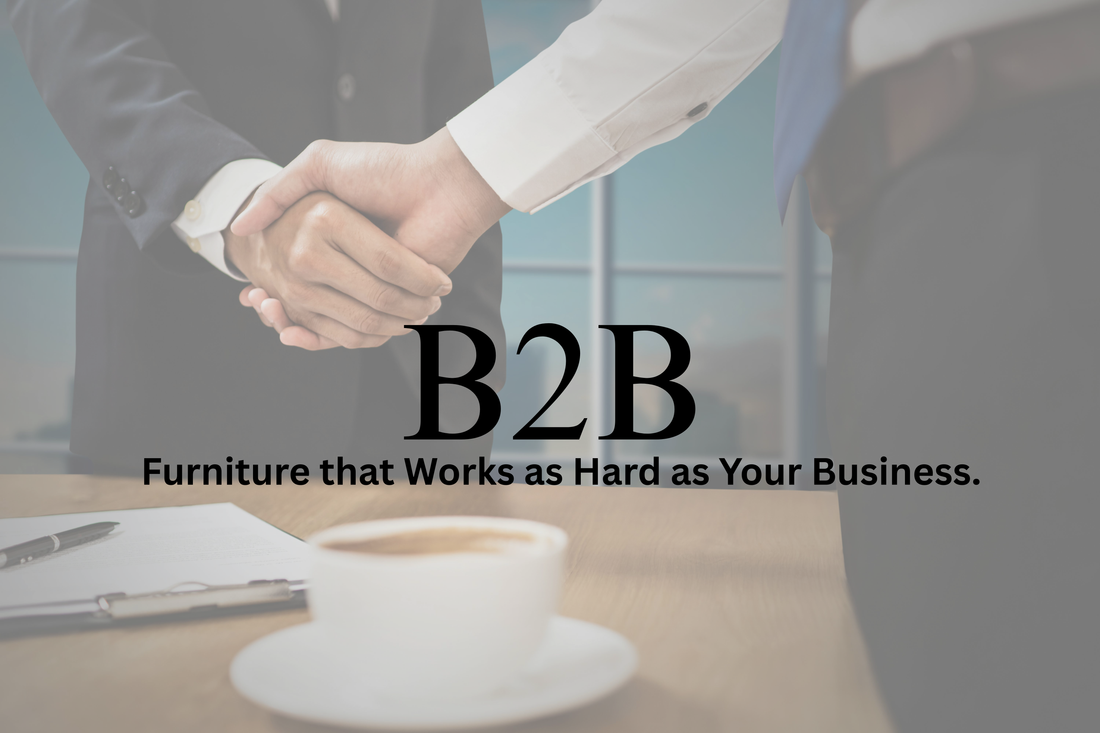
B2B Furniture Explained: How to Choose the Right Supplier
When you enter a hotel, living room, or office, the furniture often catches your eye before the people do. The tables, chairs, wood texture, and even the reception desk style actively show what the brand stands for. That’s exactly why B2B furniture plays such an important role in shaping business spaces.
B2B furniture isn’t about buying just one sofa or coffee table. You furnish larger spaces with B2B furniture—like placing 50 dining tables in a café or setting up matching desks and chairs in an office. You buy in bulk, but you do it smartly and with style.
Why Businesses Invest in B2B Furniture
If you’re a business owner, you already know that furniture isn’t just decoration—it’s an investment. The right furniture makes your space practical and inviting for employees, clients, and guests.
Here’s why businesses prefer B2B solutions over retail shopping:
- Built to last – Commercial furniture is designed for daily, heavy use. An office chair should survive eight hours of use every day, not just a weekend Netflix binge.
- Bulk savings – Buying directly from suppliers means better pricing on large orders.
- Consistency – Having all pieces in the same design family gives your space a professional, premium look.
Where B2B Furniture is Used
The uses are endless, but some industries rely on it more than others:
- Corporate Offices – Desks, ergonomic chairs, storage units, and lounge seating.
- Restaurants & Cafes – Durable dining tables, bar cabinets, living space, and outdoor furniture that can handle daily wear and tear.
- Retail Spaces – Display counters, shelving, and decorative accessories.
Each space has different needs—but they all share one thing: the furniture must balance style, comfort, and durability.
How to Choose the Right Supplier
This is where many businesses hesitate. With so many suppliers offering “premium furniture,” how do you know which one to trust? Here are some practical tips:
- Check Materials and Craftsmanship
If a supplier uses solid wood, reclaimed wood, or high-grade leather, you’re more likely to get lasting furniture. Restaurants and boutique hotels love rustic reclaimed wood because it’s eco-friendly and has a timeless charm.
- Look for a Personal touch
Businesses are not one-size-fits-all. Your café might need narrow tables, while your office conference room might require a custom-sized boardroom table. A good supplier should adapt to your needs, not the other way around.
- Explore Style Options
Do they only sell modern furniture, or do they also have transitional, rustic, and premium furniture options? A wide catalog shows they understand diverse business aesthetics.
- Evaluate Service and Support
Furniture is heavy, and logistics matter. The package usually covers delivery, assembly, and after-sales support. A supplier who disappears after shipping is not a partner you want.
- Trade Programs & Pricing
Many B2B suppliers offer trade discounts or wholesale pricing for bulk orders. This ensures you don’t compromise on quality while staying within budget.
Final Thoughts
B2B furniture is about more than just filling a room with chairs and tables. Your space shows your brand, makes a good impression on clients, and keeps employees and guests comfortable.
You can choose clean modern furniture, eco-friendly rustic wood, or bold premium designs. The right supplier will help you find the best mix of style and function.
If you choose carefully, furniture becomes an asset—not an expense.
FAQs
Q1: How is B2B furniture different from retail furniture?
Manufacturers design B2B furniture for commercial use, making it stronger, personal touch, and available in bulk.
Q2: Can I order customized furniture for my business?
Yes. Many suppliers let you choose sizes, finishes, and styles to match your space.
Q3: Does reclaimed wood offer durability for business use?
Definitely. Rustic reclaimed wood is not only durable but also eco-friendly and full of character.
Q4: Do small businesses also benefit from B2B furniture?
Yes. Even a small café or boutique can save money and create a cohesive look with B2B orders.
Q5: What should I check before choosing a supplier?
Look for reviews, material quality, personal touch options, delivery service, and trade pricing.
